When I could no longer bear the idea of booking a flight, reading one 151-page book gave me more help than I'd ever expected. Kate Demolder writes.
The story of my fear of flying is a complicated sentence that I am always trying to finish - to finish and put behind me.
It resists finishing because my fear boasts such an active presence, and I am haunted by my own sense impressions, which re-emerge when I try to write it down, and shiver between the lines.
Flights were, thankfully, never something I thought about too much in my teenage years. I rarely flew and thus had no need. But my fear sharpened and crystallised in college, when flights became more regular and opportunities presented themselves in a way they hadn’t before.
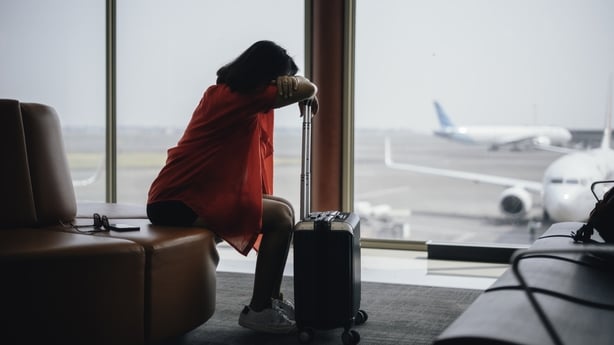
From then, weeks before a flight, anxiety played like background music jolting me forward and radiating dread. I explained this to my doctor, and started taking Xanax to quell the feeling. Until I noticed, when it was already too late, that these pills dulled no feelings for me. And, at times, it actually exaggerated it due to a rebound effect.
Booze*, too, made it far worse––and flying hungover, after a wedding or party, often resulted in hot, salty tears flowing down my face from check-in to landing.
My fear has ranged from, at its best, a mild discomfort, to its worst, fully-raging panic attacks. Mercifully, on all occasions, I have either been sitting next to someone exceptionally kind or surrounded by gentle, clued-in cabin crew members who have ensured that I stay safe.
That said, each flight always begets a panic for the flight back––something that persists throughout the time spent at that destination and never dilutes until my feet are back on home soil. As you can imagine, it's kind of a physical pain. Not just for me, but for my friends and family… who probably wish they’d left me at home.
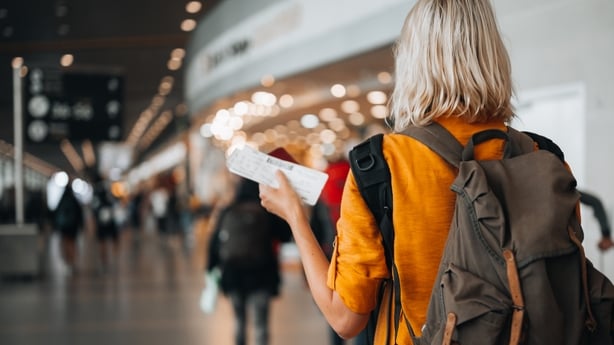
At 31, following a flight home from Spain that was so unenjoyable I almost broke my boyfriend's hand from squeezing it so hard, I decided I couldn’t live like this any more. I no longer wanted to make plans, visit friends and family abroad or attend work trips if they involved air travel. So, in an act of desperation, I searched online for help.
Hundreds of thousands of search results popped up: hypnosis, interviews with pilots, videos detailing every sound a plane could make, expensive Fearless Flyer courses, flight simulations, breathing exercises and videos of travel influencers recommending tips… Then, I found a book.
It had thousands of five-star reviews, an undaunting name and was available to buy for less than €15. My boyfriend clicked purchase, and the colour bled from my face.
The book, The Easy Way To Enjoy Flying, by Allen Carr, arrived three days later. (Yes, the same Allen Carr whose book The Easy Way To Stop Smoking, has sold millions of copies, and is regularly touted as the reason people have quit.)
30 pages in, I’m disheartened. Carr, who previously suffered from a fear of flying so great that he too wasted entire holidays wishing he’d never left home, speaks in great detail about how the book will help in this way and in that way, detailing how it will make you excited about flights, and not simply dread them, how flying is marvellous, a privilege, and the only way we can see above the clouds without climbing Everest and clambering for air.
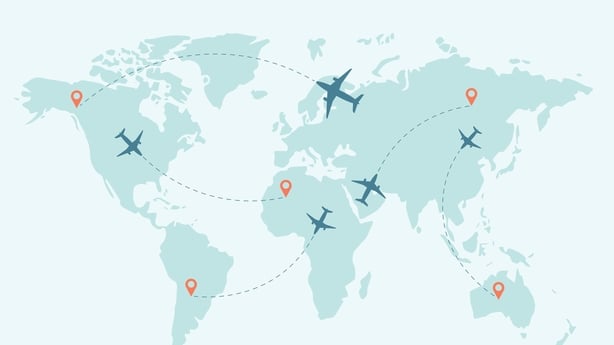
At this stage, I was worn down and wondering if this had been a waste, and gotten upset with myself for getting excited. Historically, I am sceptical of internet sensations, and even more so of alternative treatments.
I prefer things facts-based, and don’t have the money to spend on purchasing snake oil. I’ve also been to therapy several times, but speaking about thoughts that felt irrational to a stranger often left me feeling stupid and pitiful––something that breathing techniques or guided meditations rarely remedied.
Nevertheless, I persisted.
The tears began on page 73. Everything had changed about five pages before, where abstract notions of fear and logic turned to pragmatic tips and entire system debunkings. Carr insists that the modern fear of flying is Hollywood’s fault, and that rigorous testing and service checks are put in place to ensure that every mistake that’s ever been made in flying history has been fixed and accounted for. (Once, he said, there was an instance of both pilots coming down with food poisoning mid-flight as they both ate the same thing; the flight was landed safely, and now it’s a protocol that pilots choose different meals to ensure this never happens again.)
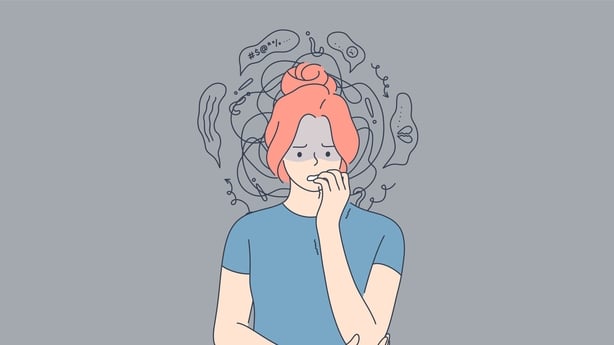
He provides logic for everything and insists that several dozen, highly-trained staff are employed to keep an eye on the plane that you’re on at all times. Too, he unpacks how turbulence puts no one in any danger and how a plane will never, ever simply drop from the sky. I felt less stupid, and pathetic, than when I started, and continue.
Perhaps the most important part of the book is when Carr mentions how, crucially, we should stop attempting to fly the plane ourselves––as those who have been chosen to do it have gone through enough rigorous, random and top-level testing, that they are comparable to Tiger Woods at his greatest peak.
Later chapters unravel irrational needs I had struggled to even to admit to myself. Tears fell as I read because I could feel my fear getting smaller inside me. Chapters entitled 'What if the wing falls off?’ and ‘If we were meant to fly, we’d be born with wings,’ allowed the thoughts in my head to be squashed like ants, while rational fears of heights and trusting another person with your utmost safety are dealt with delicately and with kindness. (Carr also recommends travelling to your nearest airport to watch planes land and take off with ease until your mind gets bored––this helps hugely.)
As someone who has been told by strangers, friends and therapists that "the safest way to travel is by plane," countless times, Carr’s book felt like someone was listening, really listening, and not just because I was paying them to do so. I cried some more, not knowing how much energy my body was using constantly for this fear––even when I wasn’t anticipating another flight. It lived inside me always, unbeknownst to myself, and reading Carr’s book allowed me to break a lot of it down with logic and reasoning.
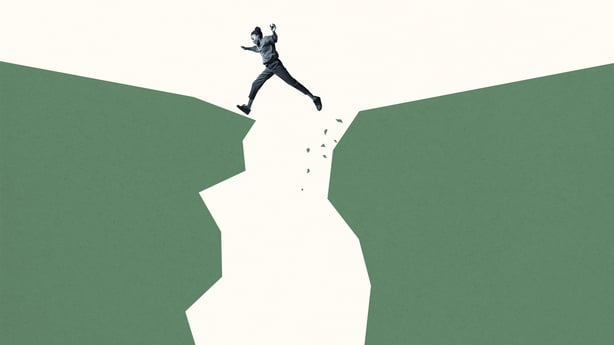
The end of the book, too, has an appendix, which reads like a modern mantra, and seems to purposefully train the brain to relax with a few short words:
- Follow all the instructions
- Keep an open mind
- Start off in a happy frame of mind
- Think positively
- Go for it!
- Enjoy it!
- Do not try to take your mind off the flight
- You are going to take control
- Don’t try to fly the plane!
While reading, I noticed my heartbeat, slow and steady, and scanned my brain for thoughts of disaster but found none.
As we booked our next flight, I felt a sense of ease. I couldn’t tell whether it was a placebo effect, a brain rewiring, or the realisation that I don’t always need to escape that seemingly eradicated my fear. But I know I’ll be packing Carr’s book the next time I fly.
Indeed, as I type this, I can’t help but notice an aeroplane flying over my neighbourhood, and how I myself can appreciate the novel angle and a sense of calm, even if it turns out to be temporary.
The views expressed here are those of the author and do not represent or reflect the views of RTÉ


